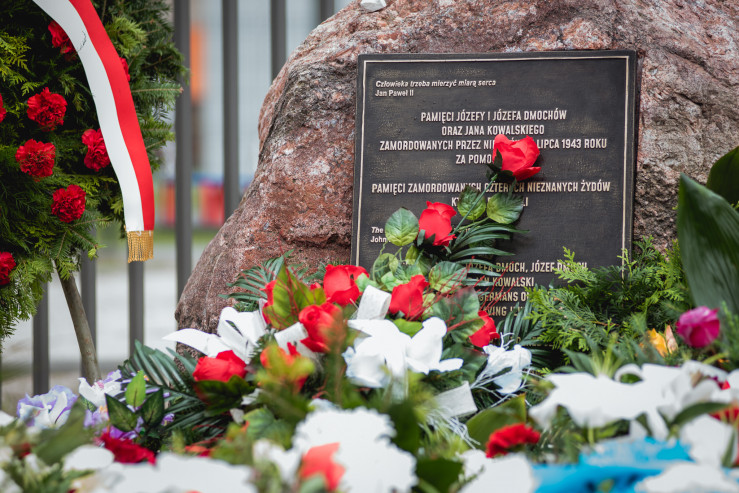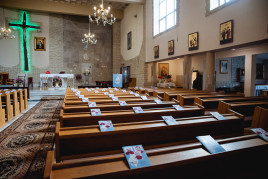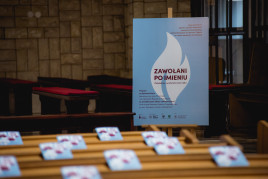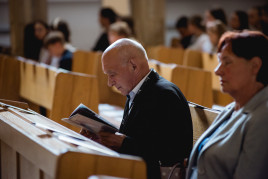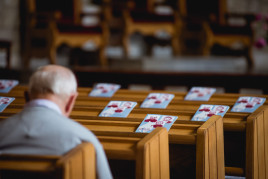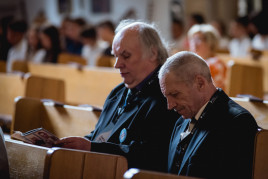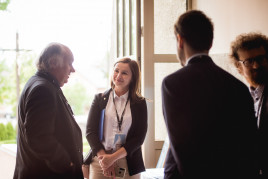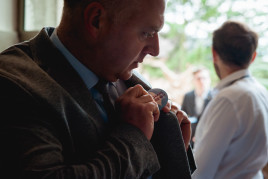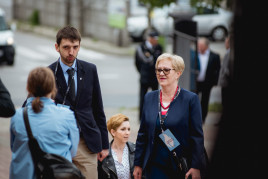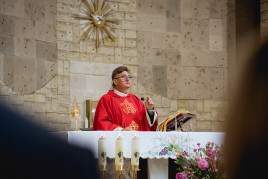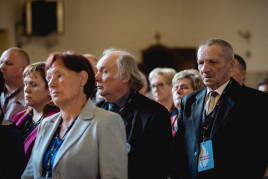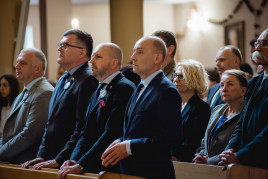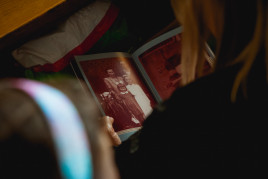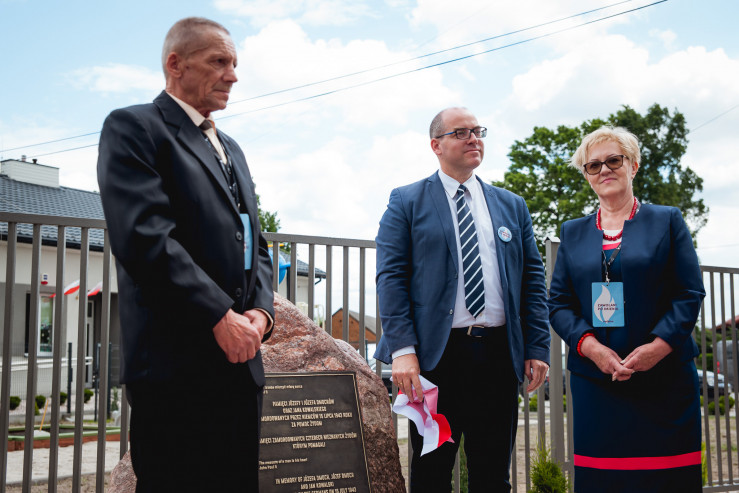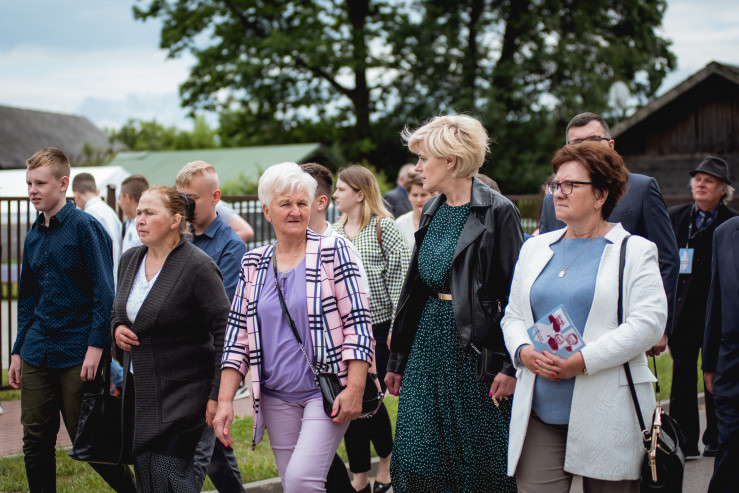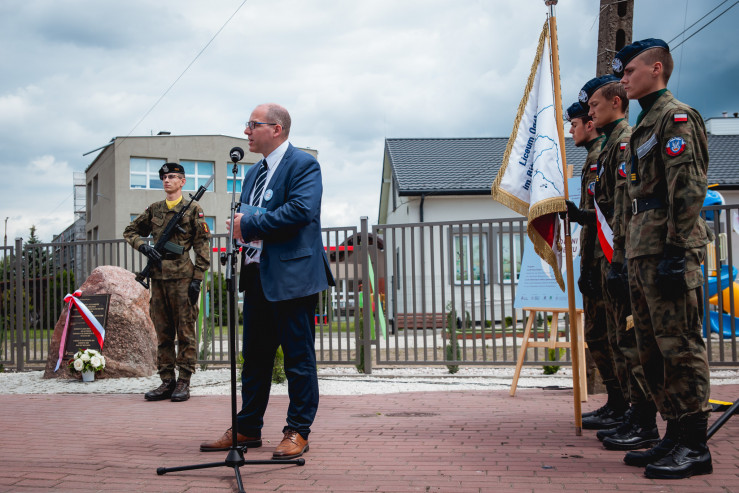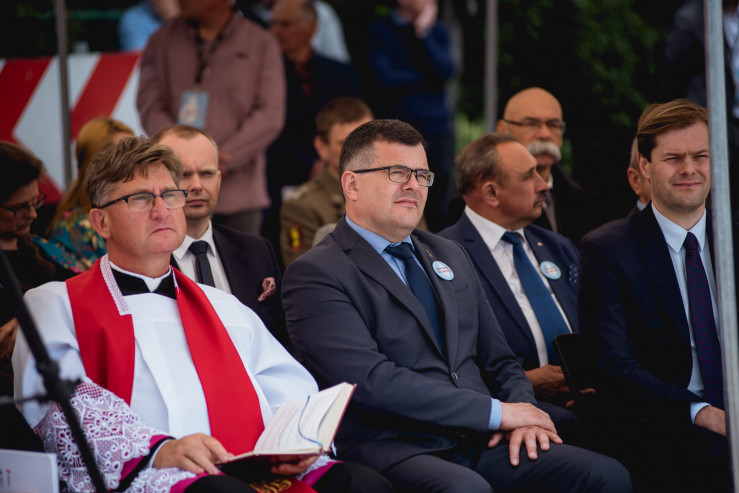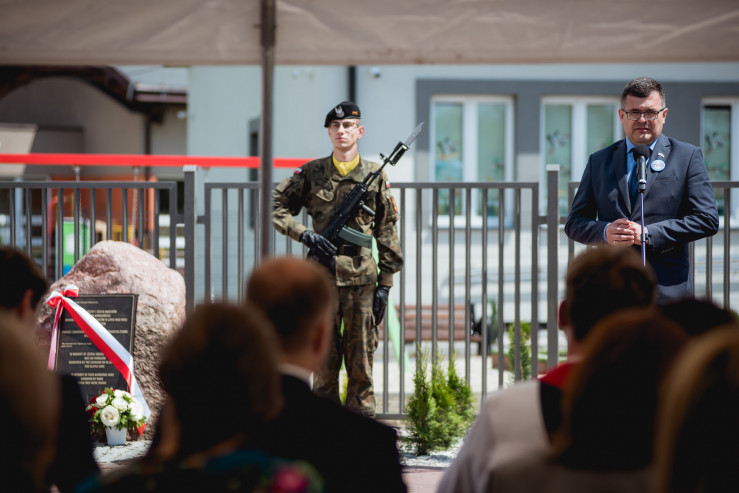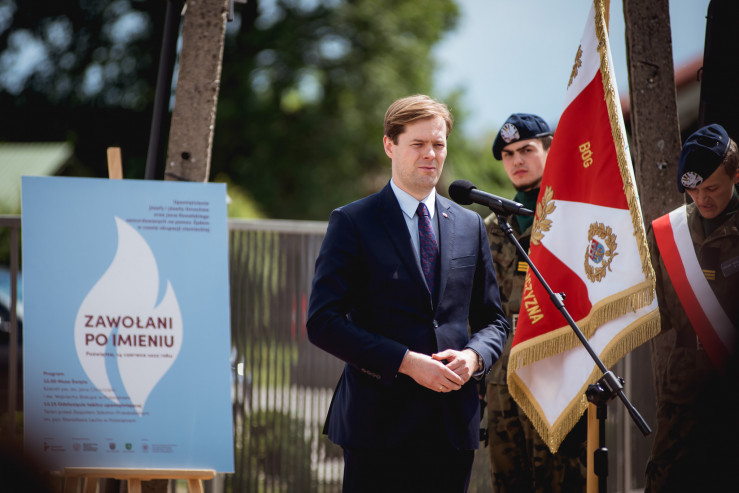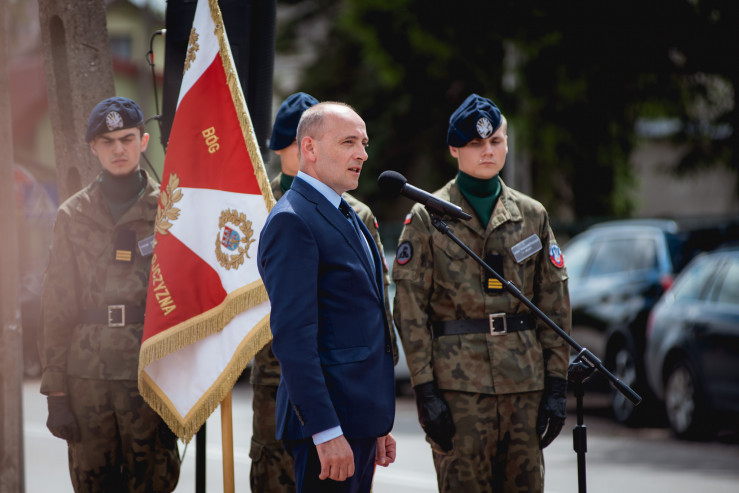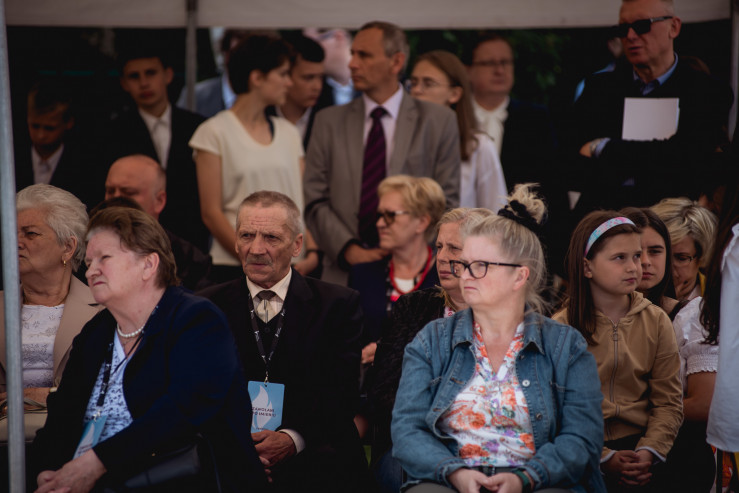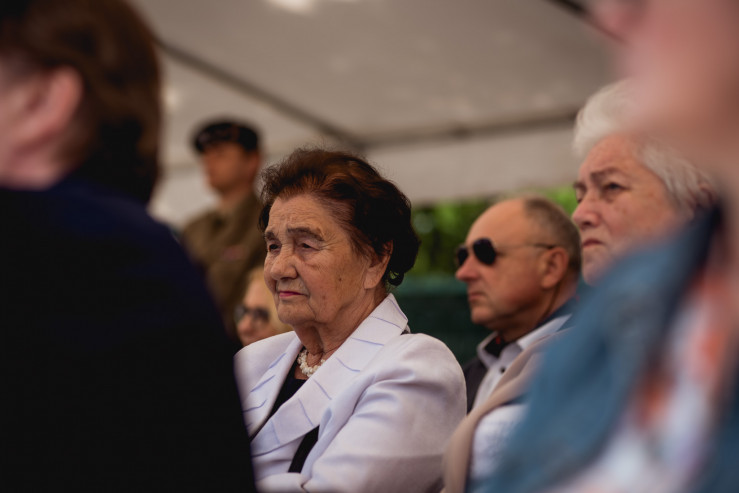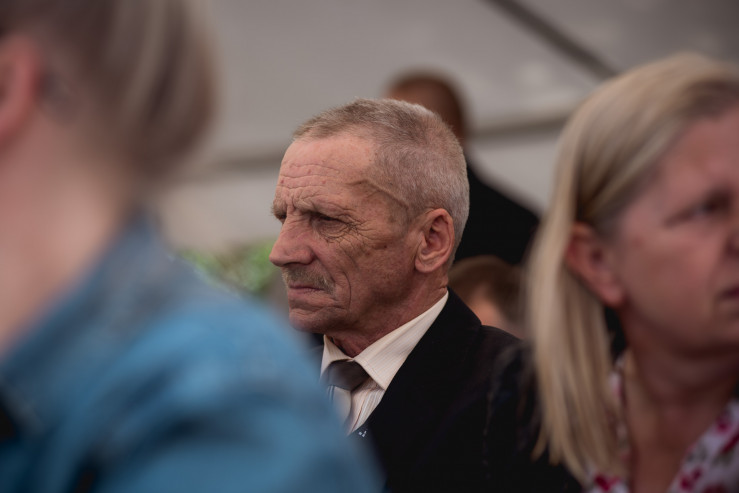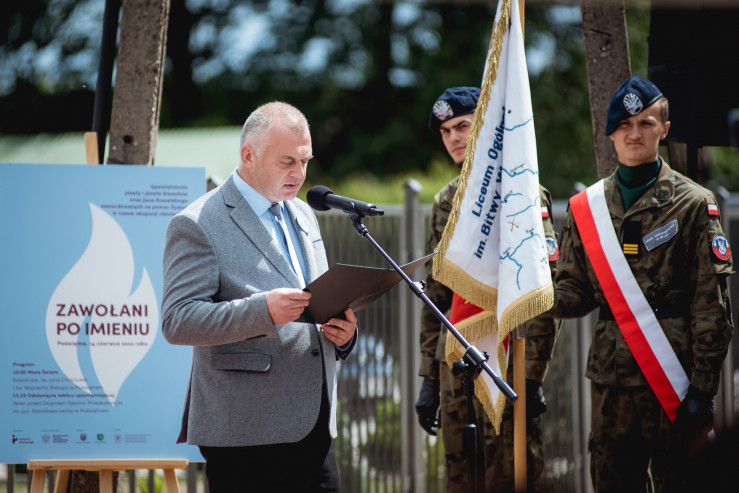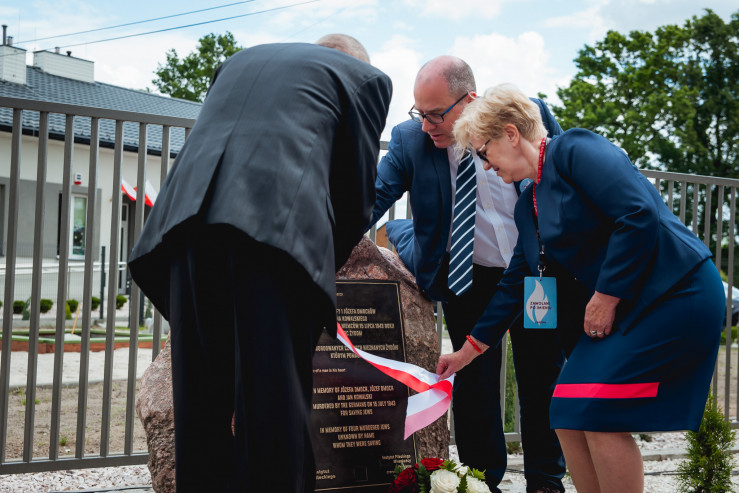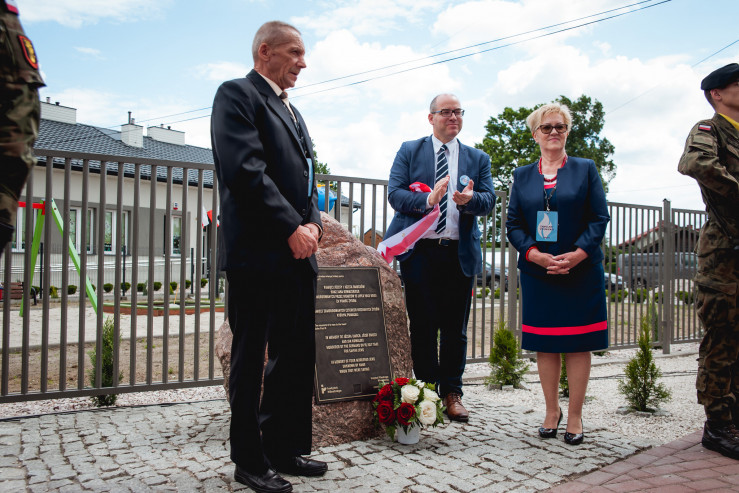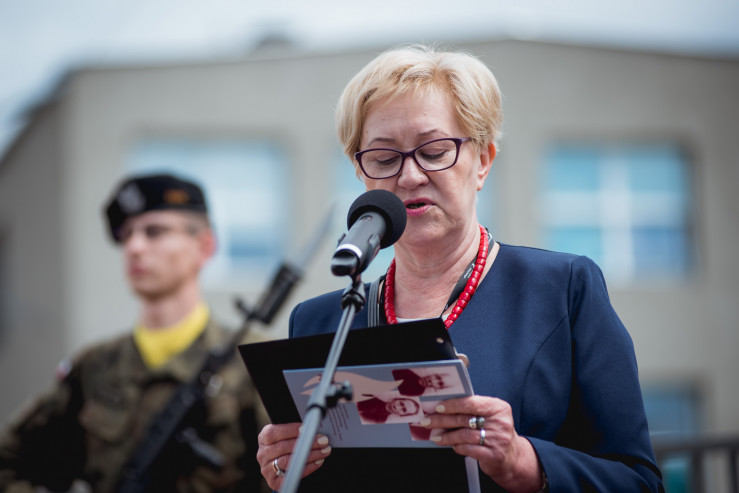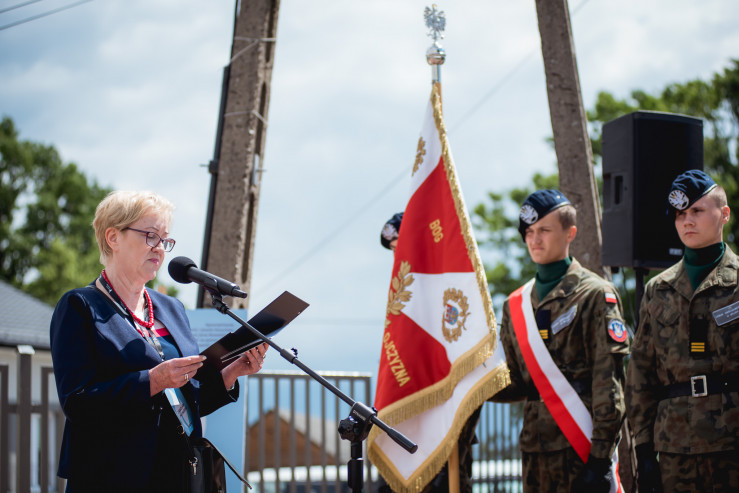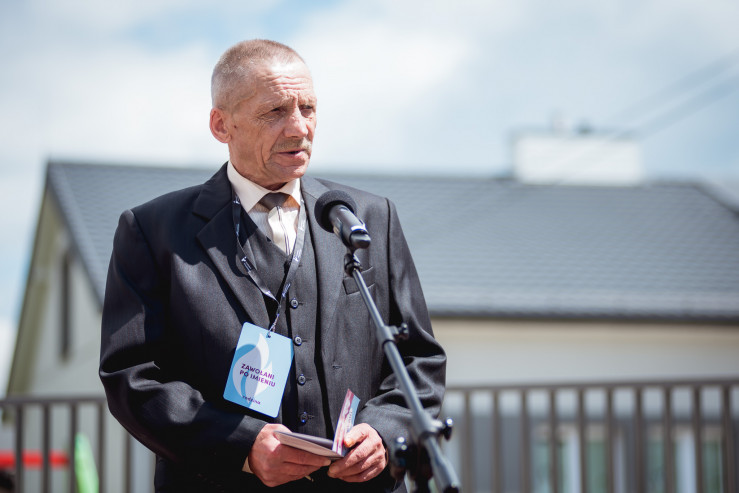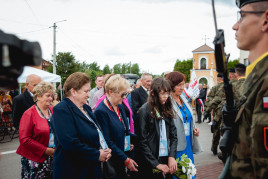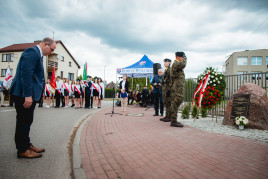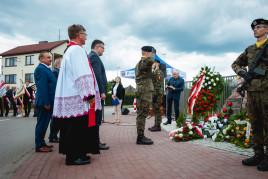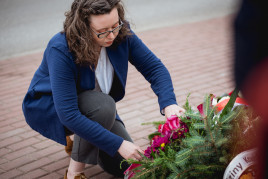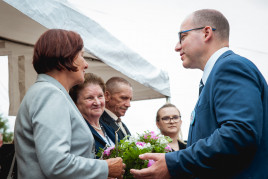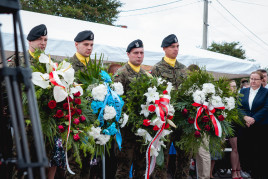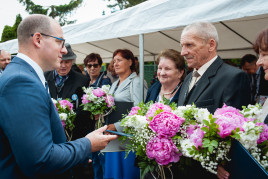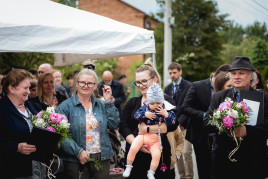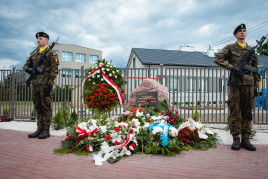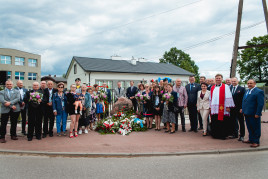The commemoration of Józefa Dmoch, Józef Dmoch and Jan Kowalski - Instytut Pileckiego
The commemoration of Józefa Dmoch, Józef Dmoch and Jan Kowalski
On 14 June 2022 in the Poświętne Commune, we had the honor of organizing the twenty-sixth event of the “Called by Name” program commemorating Poles who were murdered for helping Jews during German occupation.
Józefa Dmoch, Józef Dmoch and deputy head of the Helenów village Jan Kowalski were shot on 15 July 1943. The Germans also killed the four persons of Jewish origin whom the Dmoch family was hiding in their house, and whose identity remains unknown.
The story of Józefa and Józef Dmoch
Józefa (born 1898) and Józef (born 1896) Dmoch lived at the edge of a small village of Helenów (now Poświętne Commune), near Stanisławów. They had seven children: Jan, Marianna, Stanisława, Henryka, Czesława, Mieczysław and Aleksandra. The Dmoch family had a farm located at the edge of the forest. Their story was tragically tied with the fate of the family of deputy head of the Helenów village Jan Kowalski (born 1906), his wife Ludwika (born 1911) and their two children: Bolesław and Roman.
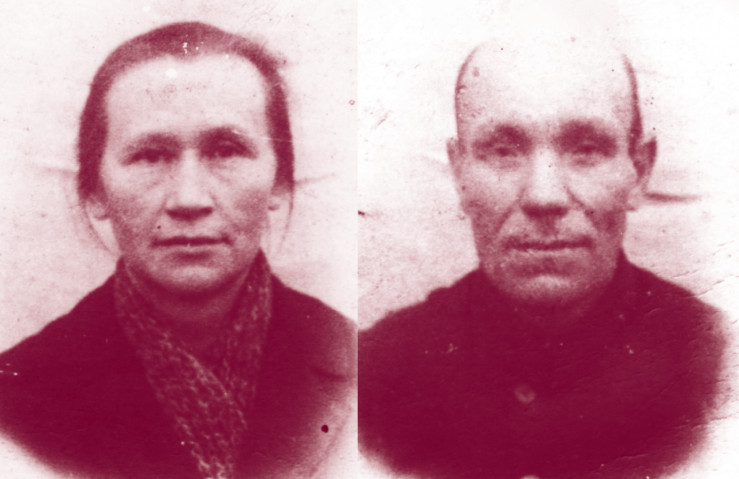
Most likely in the summer of 1943, the Dmoch family gave shelter to ten individuals of Jewish origin from Warsaw and Stanisławów, whose names remain unknown. The Germans came to the Dmochs’ farm in July 1943, probably as a result of a denunciation. The Dmochs and the Jews tried to escape. Six of the Jews along with the Dmoch children managed to flee or hide successfully. The rest was less fortunate. One of the Jewish women jumped out of the window with the eldest Dmoch girl, but was shot and died later due to her injuries. One of the Jewish men managed to get near the railway tracks before he was shot. Two other Jews were arrested along with Józefa and Józef Dmoch. On the way back to the gendarmerie station, the Germans also arrested Jan Kowalski and his wife Ludwika.
(…) several German gendarmes arrived and took my father out of the house. They waited for my mother, who was getting dressed. Father told me, and I’ve remembered this, “farewell, I don’t think we’ll see each other again.”
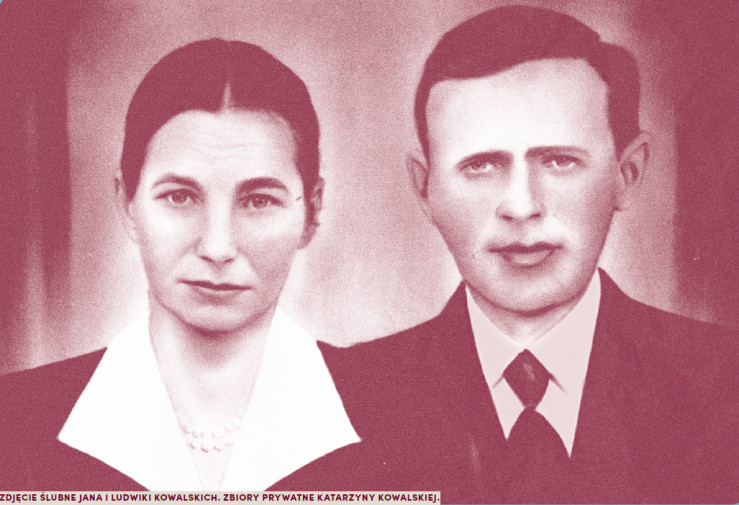
All arrestees were transported to the German gendarmerie station in Radzymin, where the Jews were immediately murdered, while the Dmochs and the Kowalskis were detained and subjected to brutal interrogations. It is unknown whether the Kowalskis were charged with directly helping the Jews who had been hiding at the Dmochs’ house or with failing to inform the occupation authorities that the Dmochs had been hiding Jews, which was punishable by death under the occupation law. In a hastily organized trial, the German occupiers sentenced Józefa Dmoch, Józef Dmoch and Jan Kowalski to death. They were shot by German gendarmes on 15 July 1943 in the Radzymin forest and buried in a collective grave.
The commemorative event
On 14 June 2022 in Poświętne, as part of the “Called by Name” program, we recalled the tragic story of Józefa Dmoch, Józef Dmoch and deputy head of the Helenów village Jan Kowalski, who were murdered by the Germans on 15 July 1943 for helping Jews. The event was attended by the relatives of the victims, local residents, and representatives of the state and local authorities.
The ceremony began with the Mass celebrated by the parish priest Fr. Robert Kalisiak at the Church of John the Baptist and Saint Adalbert of Prague in Poświętne.
A stone with a commemorative plaque honoring Józefa Dmoch, Józef Dmoch and Jan Kowalski has been placed in front the Kindergarten and School Complex in Poświętne. The plaque was unveiled jointly by Grażyna Prostko (representative of the Dmoch family) and Wojciech Kowalski (descendant of Jan Kowalski) with the assistance of Dr. Wojciech Kozłowski, Deputy Director of the Pilecki Institute.
Kind-hearted – that’s how my dad described them. Very friendly towards other people. The war wasn’t the only time they helped others. I believe it was a natural way to act. I don’t understand why we were punished for that in such a way.
Dr. Wojciech Kozłowski added in his speech that commemorating the victims was a fundamental element of historical justice:
we restore the memory of those whom the occupier sentenced to death – also by consigning them to oblivion – in order to symbolically revoke this punishment.
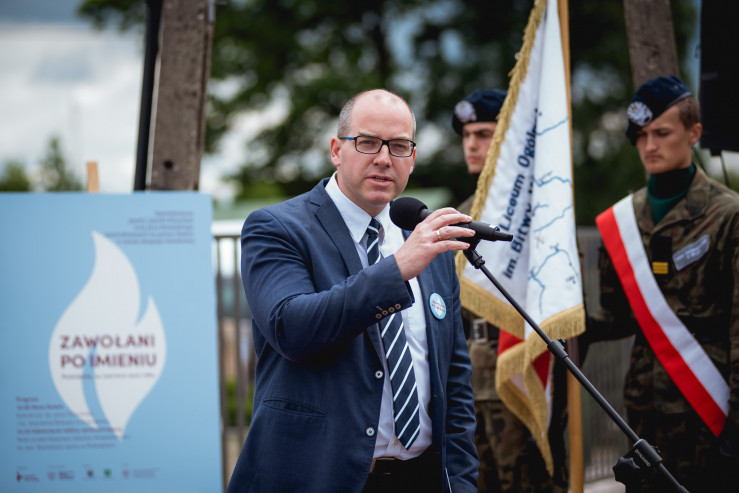
The representatives of the families of those “Called by Name” together with state and local authorities concluded the ceremony by laying flowers by the stone with the commemorative plaque.
So far, the Pilecki Institute has commemorated 59 individuals during 26 commemorative events organized as part of the “Called by Name” program.
